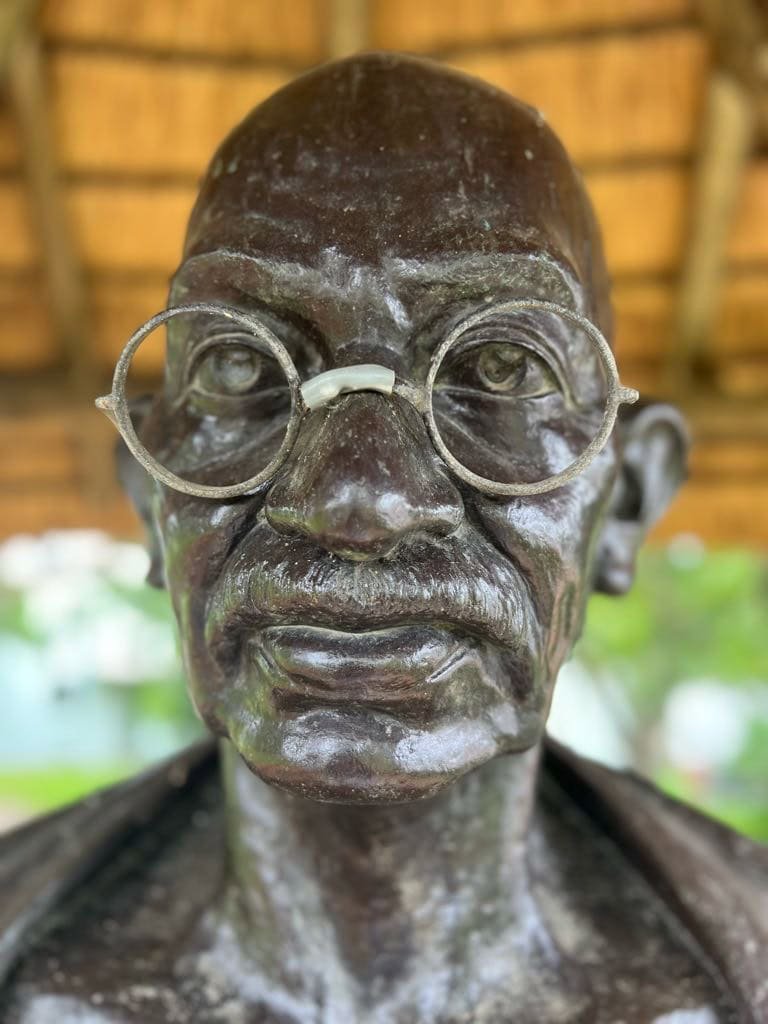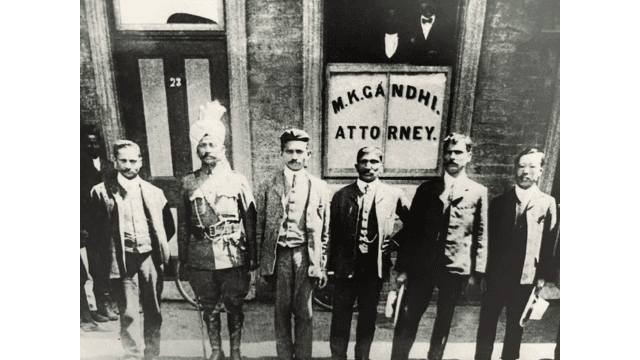Gandhi and Catholic social teaching both tell us that non-violence does not exclude calling for punishment of those who violated human rights.
by Daniela Bovolenta*
*A paper presented at the webinar “International Forum on the 1219 Incident, The Truth That the Taiwanese Government Refuses to Face: Persecution and Violations of Tai Ji Men’s Freedom of Religion or Belief Enter Their 29th Year,” Taipei, December 19, 2024.

In 2015, an Indian Salesian Catholic priest, Father Peter Gonsalves, published a curious book in which he tried to compile a complete list of the implicit or explicit references to Mahatma Gandhi in documents of Catholic Popes, from Pius XII to the current Pope Francis. They are, indeed, numerous. But even more numerous are Gandhi’s references to Christianity and to Catholic saints and historical characters. There is no doubt that Gandhi was a pious Hindu and was never tempted to convert to any different religion. Yet, he had a great interest and deep respect for Christianity.
In one of the Catholic documents mentioning Gandhi, Pope Francis’ “Message for the World Day of Peace 2017,” the similarity between the Mahatma’s strategy of “Satyagraha,” or non-violent action, and the Christian method of peaceful action epitomized by figures such as Mother Theresa is presented through two key features. These are important to avoid easy misunderstandings. They also have a universal value and can be applied to the Tai Ji Men case and the fight of Tai Ji Men’s dizi (disciples) for peace, love, conscience, and justice.
First, Pope Francis’ Message underlines that the non-violent method excludes private vendetta or retaliation but does not deny the need for justice. Those who have committed crimes should receive a just punishment, which is not vengeance but retributive justice. Mother Theresa was described by those who met her as a gentle and sweet woman. Yet, Pope Francis reminds us that her voice trembled when she asked that criminals who abuse the poor and the defenseless be held accountable for their crimes. “Nonviolence,” Pope Francis wrote in the Message, “is sometimes taken to mean surrender, lack of involvement, and passivity, but this is not the case.”
Here is a first lesson for the Tai Ji Men case. Tai Ji Men dizi are admired throughout the world for their non-violence and their message of peace and love. Yet, there is no peace without justice. Being peaceful citizens and even operating according to Gandhi’s principle of Satyagraha does not mean that injustice should be ignored, and those who have violated human rights should not be punished. When he lived in South Africa, Gandhi was a successful lawyer in Durban. He already preached non-violence but as a lawyer he asked for exemplary punishment of those who had violated human rights. Interestingly, he also represented Chinese immigrant workers, whose human and labor rights were often denied. He asked that not only injustices should be rectified but those who had committed them should receive a just punishment.

Prosecutor Hou Kuan-Jen and others who violated the human rights of Tai Ji Men have not been punished, they have even been promoted. It is perfectly consistent with the principle of non-violence to call for their punishment and for a public acknowledgement that what they did was criminally wrong and caused an enormous amount of unnecessary suffering.
A second principle Pope Francis emphasized in his 2017 message and shares with Gandhi is that women and men of peace, when they suffer injustice, not only do not react with violence and protest according to the peaceful method the Mahatma called Satyagraha. They also do not let injustice and persecution distract them from their main task, i.e., announcing peace and love to the world. This is what their opponents would like, that they would devote all their energies to resist persecution and would cease their most important activity, spreading their message internationally. The method of Satyagraha also implies the effort, while resisting persecution non-violently, to steadfastly continue in the good work of announcing truth and peace to the world.

This, again, applies to you, Tai Ji Men dizi. While you resist harassment and the consequences of unjust tax bills non-violently, you refuse to be distracted by the persecution. Every year, and every day, you continue to travel throughout the world announcing peace, love, and conscience. Gandhi would be proud of you. You are the new warriors of peace.
As women and men of justice, we call for the immediate solution of the Tai Ji Men case. As women and men of peace, we salute the extraordinary action of the dizi and their Shifu, Dr. Hong, in promoting peace, love, and conscience. As friends of human rights, today we are all dizi.




